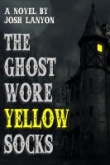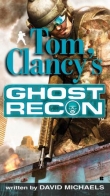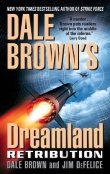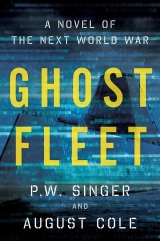
Текст книги "Ghost Fleet: A Novel of the Next World War"
Автор книги: P. Singer
Соавторы: August Cole
Жанр:
Триллеры
сообщить о нарушении
Текущая страница: 20 (всего у книги 37 страниц)
Moana Surfrider Hotel, Waikiki Beach, Hawaii Special Administrative Zone
“Ten o’clock.”
That was all he had said when he slid the room card across the rental counter to her. Nothing more, just a wink and a smile before he walked off, his hair still dripping seawater. A gold Rolex dive watch hung loosely on his left wrist, exposing a whisker of paler skin beneath the tan. He hadn’t even given his name, assuming she had to know who he was. And he was right. Supposedly, his uncle ran Bel-Con, the electronics company in Chengdu. One of the maids Carrie occasionally drank coffee with had shared the gossip when he first arrived. “A creature of the night,” she had added with a shiver.
The really rich were like that, Carrie had seen, no matter what country they were from. They always assumed you knew what they wanted and that you needed to be told only when and where to provide it.
In this case, he didn’t have to tell her where. The hotel key card had said that for him. It was polished to look like platinum, but really it was cheap aluminum. As she waited in line for another security checkpoint to access the staff elevators to the hotel’s VIP suites and rooms, she ran her finger across the outline of three palm trees cut out of the middle of the card, indicating it was the key to the Moana Surfrider’s penthouse suite number 3.
The Chinese marine on duty was making everyone go through a portable body scanner, and the staff members waiting to be scanned one more time before they could get on with their jobs were getting annoyed. The most annoyed were the waiters, standing silently in their white pants and fitted black short-sleeved turtleneck shirts, who knew they’d be berated for being late.
Waiters, that was the right word for them all. Waiting for the checkpoint line to move, for the war to end, for death.
Carrie bided her time, putting the room key in her back pocket next to her ID and filing her nails with an emery board. The floors in the hallway area were scuffed, and only half the lights worked. It was the kind of neglect she had started to see all over the hotel. Knowing the stakes involved with this new clientele, the staff kept the exterior and guest hallways brighter and cleaner than they’d been even before the invasion. But behind the scenes, where the staff worked and lived out their days, the hallways were taking on the worn and tired feel of subway tunnels.
Carrie picked a piece of surfboard wax from under the nail of the ring finger of her left hand and subtly flicked it to the ground. After he’d dropped off the card, she’d stayed busy scraping the boards down, getting the sand-flecked wax off inch by inch.
“Next,” said the Chinese marine. He did not use a translator device; his English was pretty decent. She flashed her hotel ID at him and returned it to her back pocket, then set the emery board down on the table and stepped through the scanner.
The scanner warbled like a tropical bird as she picked up her things.
“What’s in the back pocket of your shorts?” he said.
“It’s my ID, okay? The lanyard broke.” She flashed him the ID again, the room key hidden behind it, holding the two cards up with a stiff arm like she was some kind of special agent. He ran another body scan and found nothing. Two of the waiters behind her stifled chuckles.
“And that, what’s it for?” he said, motioning to the emery board. He picked it up and examined it closely.
“It’s for my nails,” she said, taking it from him and putting it in her pocket.
“You can go,” the marine said, turning to the next person in line.
The elevator doors hissed open and she stepped inside. She pulled out the emery board and started to file again, this time more intently.
The elevator sighed, slowing down as it came to the top floor. As the door opened, Carrie brushed the edge of the metallic key card lightly across the inside of her elbow. It was now sharp enough to draw blood.
Moana Surfrider Hotel, Waikiki Beach, Hawaii Special Administrative Zone
“Lieutenant, you’re missing the view,” said Markov. “It really is a great place to die.”
Lieutenant Jian was too busy dry-heaving over the railing to take in the aquamarine panorama of the Pacific that lay before them.
The young officer finally looked up and angrily wiped his mouth with the back of his right hand. He scanned the horizon, squinting at the rooftops of the nearby buildings, with his hand resting on the pistol at his hip.
“You’re right, Jian, there could be insurgent snipers here also admiring the view,” said Markov. “Why don’t you go back inside and tell them to turn the hot tub off? Come get me when our friend stops boiling and we can take a better look at the body. It’ll be easier up close.” He smiled.
Jian was stonefaced when he returned a few minutes later. The water in the tub was now calm, no longer bubbling, but still wine-dark red. The dead man lay with his head resting on the teakwood behind him, revealing a crimson gill-like slit across his neck.
“Lieutenant, is he naked?”
“Sir, I cannot see into the water,” said Lieutenant Jian. “It’s too, too, uh…”
“We need to know if he’s wearing his shorts or not,” said Markov. “Find out.”
Jian looked toward the body in the room and then back at Markov.
“Come on,” said Markov. “You don’t get to earn your combat zone badge without seeing a little blood and some naked bodies. Roll up your sleeves and get to work.”
Markov pretended not to watch as Jian tried to figure out what to do next. Finally he started toward the tub, rolling up his sleeves.
“Stop!” shouted Markov. “It is an expression the Americans use. You were actually going to reach down in there? Maybe you are braver than I thought.”
Markov continue to chuckle to himself as he reached into a duffle bag full of equipment and turned on a black-light tube about the size of a D-battery flashlight. He found another one and tossed it to Lieutenant Jian. “Of course he’s naked. From what we heard from the guard downstairs, he likely spent half his time in Hawaii naked.”
He and the aide entered the room; Markov passed Jian a pair of goggles and put on a pair himself. The ultraviolet light swept the room for DNA traces, skin, blood, and any human fluids.
“Extraordinary,” said Markov as white splotches filled his view of the room. “How did he even get up there?”
He realized Lieutenant Jian had gone back to the balcony again and shouted, “It seems your boy here was a very busy young man indeed. Start tracing them. But be sure you’re wearing gloves… and I hope you’ve had all your shots.”
Markov began to take swabs, and the DNA analytics started crosschecking databases for identities.
Throughout the hotel suite, tiny faces began to appear in the field of view provided by the sensor goggles. One popped up wherever there was a concentration of DNA from a particular person, and soon there were faces looking back at Markov from all over. A few were from Directorate security sweeps, some others were linked to prewar Hawaii driver licenses, but the vast majority were mug shots from the Hawaii Police Department files. The colorful, faintly shimmering profile pictures were mostly of young women.
He reached out, touched the closest virtual card that hung in the air, and flipped it over to see the file display. An arrest record for prostitution. He flipped another. Prostitution and drug charges. And then another. Prostitution and drunk and disorderly.
Markov then swept his hand across the room, virtually grabbed all the pictures, and began to sort them, putting those with criminal records in a stack on one side of the room and those with non-arrest records, a smaller stack, in the air on the other side.
Lieutenant Jian rejoined him and started pulling down the tabs of those with arrest records. “I am sure the general will want us to round them all up, and then we can process them on our own terms,” said Jian.
“Think so? Your boy made his way through half the prostitutes in Hawaii. Arrest them all and you’ll have an uprising on your hands, but not from the locals,” said Markov, tabbing through the stack of those without arrest records, mostly hotel staff. “These poor maids, they deserved combat pay to come in here —”
Markov’s index finger stopped and rested on the image of a young woman that hung in the air. A driver’s license. He had seen her before. He flipped the picture over. Yes, the look in her eyes was different, but that was her, all right. What had the surf-shop girl been doing all the way up here?
Alto Café, Queen Street and Ward Avenue, Honolulu, Hawaii Special Administrative Zone
“Traitor,” one of them snarled.
The glares of the locals waiting out the day in a thick cloud of marijuana smoke inside the old Quonset hut on Queen Street told her she was in enemy territory, even though she was among her own people. Their scowls and squints after they took in her outfit, a sea-blue tank top as tight as a bathing suit and iridescent white formfitting pants, gave the room a new menace.
“Whore,” another said with a cough.
A subdued Colombian reggae band played in the background. It was one of the banned global peace movement songs. She had to speak up to be heard by the girl behind the bar when she asked where the bathroom was.
“Customers only,” said a teenage girl with a crown-of-thorns tattoo wreathing her bald head.
“I just have to pee; please,” said Carrie.
“Then buy a coffee or a smoke,” said the girl.
“Just coffee,” said Carrie, tossing a hundred-RMN note on the counter.
“Bathroom’s back there. Lock’s broken,” said the girl with a look of disdain.
Carrie weaved her way through the low tables to the back of the restaurant. She kept her eyes on the floor, not out of embarrassment but out of fear that someone would trip her if she didn’t watch her step.
A man in this fifties wearing a dirty white wool cap mottled with ash burns winked at her from behind a pair of taped-up viz glasses. Then he beckoned her over, curling a plump finger. The simple act of signaling her made his massive weight stress the wooden chair further. He brushed crumbs and ash from his clothing, a formless black T-shirt that went down to his ankles like a dress. She gave him a quick glance that he would replay again and again on his glasses later.
“Piss off,” she said. “You can’t afford it.” Playing the act of someone past caring. Or was it an act anymore?
Then she moved carefully past him toward the bathroom.
She looked at her translucent G-Shock and saw she had three hours until the nine o’clock lockdown. The return of curfew had done more damage to Directorate troop morale than the local insurgents had.
She leaned in toward the mirror, reapplying lipstick. She was sure the two men following her had been Directorate. They’d had flip-flops, loose linen pants, and bright floral T-shirts, but the colors were too bright. The shirts had clearly been bought recently; they didn’t have the weathered look that real locals’ clothing had. Definitely Directorate, and she knew why they were after her.
She waited in the bathroom for fifteen minutes. Then she fixed her hair and washed her hands. Maybe they weren’t following her anymore, which made it time for her to go back out there and face the hate, anger, and poison she saw in the expressions of her fellow Hawaiians every day.
Hand on the doorknob, she paused and breathed, preferring the stink of the dirty bathroom to the lazy funk of the coffee shop.
The door crashed in before she had a chance to open it. A pair of black-gloved hands threw her against the bathroom wall, knocking a faded photo of Waikiki Beach to the ground; its cheap wooden frame broke into pieces. Then she was hauled to her feet, dragged along the corridor, and thrown forward onto the café floor.
She looked up just as a knee drove into her back. Coffee dripped from one of the tables onto her head and down her face, and she blinked the stinging liquid from her eyes. The customers were gone. She didn’t have to check to know the door was locked. Nobody who’d seen her walk in was going to call for help.
Carrie tried to push herself up, straining against the weight on her back, but a foot pressed down on her left arm. Then her right.
There were two of them, and they spoke in Chinese, short bursts that were getting angrier. She tried to see who was speaking, and a fist slammed her face into the wet floor. She strained again and was forced down by a forearm across the back of her neck.
Carrie opened her eyes wide, her breath escaping. She felt one of them pulling at her legs, tugging off her pants; one pant leg caught on her right ankle and was then yanked off. She could hear the man a few feet away arguing with the other one about something. Maybe chickening out, or maybe wanting to go first.
Carrie kicked free, scrambled to a corner, and then curled into a ball and started shaking, her half-naked body covered in spilled coffee and ash from the floor.
She closed her eyes. She thought of the visits at night, always after her mom had drunk herself to sleep. How she would lose herself, escaping to the moment after she would fall from her board, entering the churning froth beneath a powerful wave, inches from the razor-sharp beauty of a reef. In that chaos, there was a beckoning peace. In the churn, you could hear nothing at all, just a ringing in your ears. If you chose, you could lose yourself in that moment forever.
Then the wave would pass, and she would rise again to the surface with a gasp.
She reached back to the inside of her left upper arm and slowly peeled away a rectangular Band-Aid three inches long. A searing pain and the red trickle of blood began to flow.
The closer commando grabbed Carrie, pulled her out of the corner, and roughly dragged her upright. She did not fight him; her arms hung limply by her sides, and the Band-Aid dropped to the ground. He wrapped his right hand around her throat, his thumb just under her jaw. He was strong enough to lift her entire body up so that her toes barely touched the ground. Growling, he pulled her in close, reached down with his free left hand, and undid the clasp of his belt. He began to unzip his pants, but then he looked into her eyes, and froze.
The stillness and tranquility of her eyes drew him in, confused him, just for a moment. He didn’t even notice the flash in her right hand.
The blade itself was short, only one and a half inches and just a bit wider than a sheet of paper. Made of ceramic, the box-cutter blade she’d taken from her fiancé’s toolbox was sharper than a razor and would never rust, not even when hidden in her pain.
He did not even feel the first slash arcing upward; so fine was the blade’s edge that his body had difficulty registering the damage being done. Even before his opened femoral artery began to spray out, she had slashed downward and across, arcing across his stomach at an angle just above his bellybutton. He was pulling his left hand back to punch at her, his pants now falling to the floor, when he noticed his intestines were spilling out.
As he fell, grabbing at his stomach, Carrie charged at the other soldier. He struggled with his concealed holster while trying to wipe away the blood from his partner that had sprayed into his eyes. He’d just barely drawn his pistol when she slashed across his wrist; the gun clattered to the floor, and she went at the other hand. He countered with a karate chop, but weak, as if he’d already given up. The box-cutter blade met his hand in the air and sliced off his left pinkie and ring finger. And then, in a frenzy, she was upon him, slashing again and again.
She lost herself in the moment, hearing nothing at all, just the ringing in her ears and the beckoning peace.
And then she rose to the surface with a gasp.
Carrie looked down. The soldier’s face was gone, just a patchwork of red lines. She couldn’t remember what it had looked like. Her father’s face was all she could recall.
Fort Mason, San Francisco
Captain Jamie Simmons kicked the soccer ball one last time down the rolling hill, marveling at how sure-footed his son was now. Jamie wore a Giants jersey over his uniform, as if he were trying to shield his kids from the morning’s uncomfortable truth.
The sun soaked the grassy field behind their house in Fort Mason. It was great weather for playing with his kids, but a part of him that was always tethered to the Zumwalt couldn’t help but wish for the concealment of a thick fog. In truth, the Directorate satellite that covered Northern California could see through any weather, but there was something comforting in feeling hidden.
He sprinted after Martin, whooping as he picked up speed running downhill toward the boy, past the Marines at the air-defense battery. By the time he caught up, Jamie found Martin sitting on the orange-and-yellow ball looking out at the Golden Gate Bridge.
“If you go out past the bridge, how can I see you?” asked Martin.
Before Jamie could respond, a pair of Marine Corps AH-1Z Viper attack helicopters thundered past the waterfront, raced out into the Bay, and then disappeared from view under the bridge.
“The whole ship is going with me,” said Jamie. “It’s my job. We have to go scare the bad guys away so they won’t try any bad stuff here.”
“Grandpa going too?” asked Martin.
Jamie paused.
“He’s coming too,” said Jamie. “He loves you, but he has to go.”
“How come you’re the captain, but he’s older?” said Martin.
“He got to choose his job a long time ago,” said Jamie. “Besides, there can be only one captain. Isn’t it good that it’s your daddy’s job?”
“Make sure to be nice to him, then. Grandpa doesn’t come over as much anymore,” said Martin. “I miss him. Is he mad at me?”
“No, nothing like that,” said Jamie. “He’s just been really busy with work.”
The knot in his stomach wound itself tighter as Jamie leaned over and kissed the stubble on Martin’s shaved head.
“I thought he left already, and you didn’t want to tell me. Who’s going to take care of us if you’re gone and he’s gone?” said Martin.
Jamie felt as if he’d been punched in the chest. But he tried to show no change.
“How about you?” Jamie asked. “Can you take care of your mom and your sister for me?”
Martin picked at a piece of grass.
“Okay,” said Martin. “I think I can do it. Because Mom needs somebody to help her out, you know. It’s actually hard when you’re gone.”
“I know it is,” said Jamie. “Let’s go see Mom and Claire now.”
Jamie put his son on his shoulders and walked back up to the house. Jamie noticed the other houses had people in the backyards, all of them engaging in the uncomfortable rituals of goodbye. The next few hours were going to be his last with his family before he left. He had to make them count.
Those few hours passed quickly amid a flurry of well-wishing visitors and their children, giving the day a rhythm of alternating moments of laughter and tears. Before Jamie knew it, he was standing on the porch with his wife, holding Martin in one arm and Claire in the other.
Lindsey reached out and wiped a tear from Jamie’s eye.
“Kids, up in your rooms I left something for you,” said Jamie. “Do you think you can wait until I get back to open it?”
They started squirming immediately, and he set them down.
“Okay, okay, go!” said Jamie.
From the front porch, he watched them scamper up the stairs.
He turned to Lindsey and pulled her close in a hug whose pressure built with each second. The only words that came to Jamie’s mind were I’m sorry. Before he realized he had spoken them, Lindsey said, “I’m sorry too.”
A hoot of joy upstairs punctuated their apologies.
“Not the best goodbye we’ve had,” said Jamie.
“Not the best war we’ve had,” said Lindsey, trying to smile. “Just make sure to see the end of it with me. Do everything you can out there to make sure this never happens again.”
“I promise. There won’t be a next time. I lost myself in the ship, and I know I had to, but it wasn’t something I meant to do.”
“Your dad never knew how to say goodbye, did he?” said Lindsey. “You do. Be safe.”
“I’ll send a letter as soon as I can,” said Jamie.
A thunder of eager footsteps came down the stairs.
Martin wore a baseball cap with the Zumwalt’s silhouette on it and gold braid on its bill. On the back it read Captain Martin Simmons. Claire clutched a stuffed gray dolphin wearing a gold-and-blue U.S. Navy T-shirt.
A steady horn blew from down on the pier.
“Captain can’t be late,” said Lindsey. “Say goodbye to Daddy.”
Jamie crushed his kids with one last hug, inhaling the smell of shampoo and grass. He stood and kissed Lindsey hard, then pressed his forehead against hers.
“I love you. Forever,” he said.
“Forever,” she said.
He turned and started to walk with unsteady steps across the front yard to the waiting launch.
“Wait!” said Lindsey.
She ran toward him and tugged on his shirt. He looked down. He was still wearing the baseball jersey. She pulled it off him as he held his arms up to the sky.

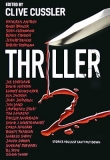
![Книга [Magazine 1966-07] - The Ghost Riders Affair автора Harry Whittington](http://itexts.net/files/books/110/oblozhka-knigi-magazine-1966-07-the-ghost-riders-affair-199012.jpg)
